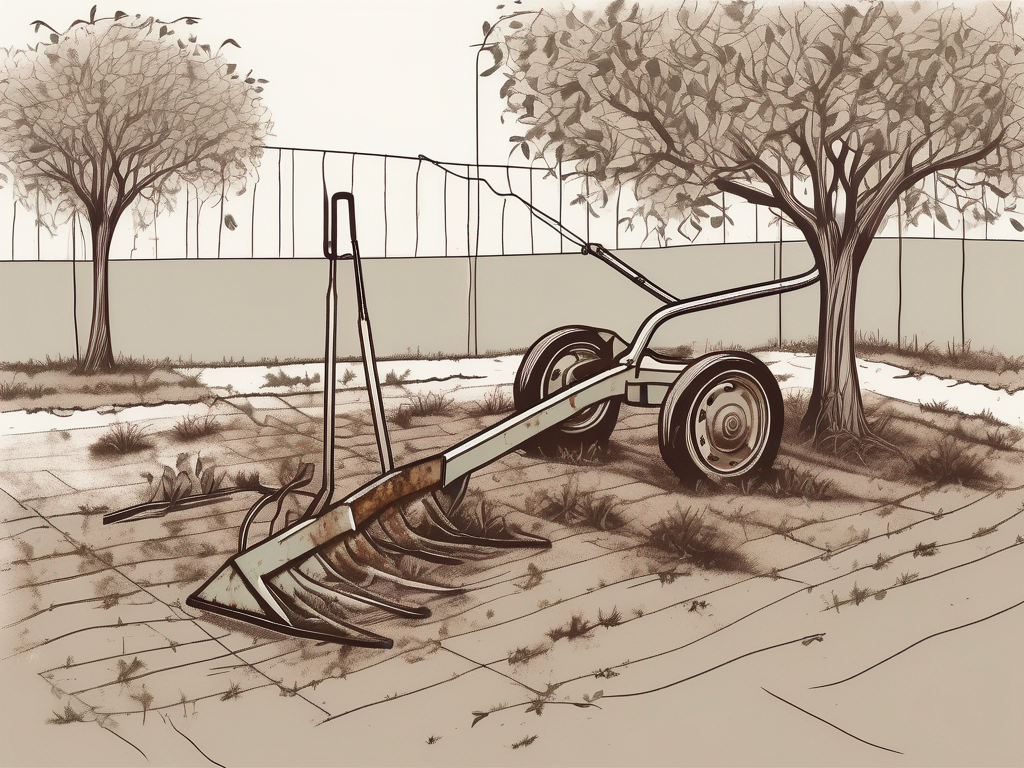In our fast-paced and productivity-driven society, laziness is often seen as a flaw or a negative trait. But what does the Bible have to say about being lazy? Are there any spiritual or moral implications to our work ethic? In this article, we will explore the biblical perspective on laziness and discover how it can guide us towards a more purposeful and diligent life.
Understanding Laziness from a Biblical Perspective
Before we delve into the biblical teachings on laziness, let’s first understand what it means in a biblical context. Laziness, according to the Bible, goes beyond simply avoiding work or physical exertion. It encompasses a deeper attitude that hinders our ability to fulfill our responsibilities and contributes to our lack of productivity.
Moreover, laziness is not just a physical state but also a spiritual and emotional state of being. It affects our relationship with God and hinders us from living out our calling to the fullest.
When we examine laziness from a biblical perspective, we find that it is not a characteristic that God desires for His people. In fact, the Bible encourages diligence, hard work, and stewardship of the gifts and talents that God has given us.
Defining Laziness in Biblical Terms
When the Bible refers to laziness, it emphasizes the idea of being idle or slothful. It speaks against a lack of motivation, discipline, and commitment. Laziness is not merely a momentary break or rest but an ongoing pattern that prevents us from fulfilling God’s purpose in our lives.
Furthermore, laziness can manifest itself in various forms. It can be seen in procrastination, making excuses, or avoiding responsibilities. It is important to recognize these signs of laziness in our lives and take steps to overcome them.
The Root Causes of Laziness According to the Bible
What leads to laziness? The Bible points to several underlying factors. Proverbs 21:25 highlights how laziness often stems from an excessive desire for pleasure and comfort. When we prioritize our own comfort and indulgence over fulfilling our responsibilities, we fall into the trap of laziness.
In addition to seeking pleasure, fear and doubt can also contribute to laziness. Proverbs 22:13 portrays a lazy person who makes excuses, saying, “There is a lion outside! I shall be slain in the streets!” This demonstrates how fear and insecurity can paralyze us, making it easier to avoid the work that lies ahead.
Moreover, the Bible warns against the dangers of laziness and its consequences. Proverbs 24:30-34 describes the consequences of laziness, using the analogy of a neglected field. Just as a field that is left unattended becomes overgrown with thorns and weeds, so does a life marked by laziness result in unfulfilled potential and wasted opportunities.
It is important for us to recognize the root causes of laziness in our lives and address them with biblical wisdom. By seeking God’s guidance and relying on His strength, we can overcome laziness and live a life of purpose and productivity.
Biblical Verses Addressing Laziness
Old Testament Teachings on Laziness
In the Old Testament, we find various admonitions against laziness. Proverbs, in particular, is filled with wisdom on this matter. Proverbs 6:6 urges us to consider the ways of the ant, which works diligently and gathers food in the summer, preparing for the future.
As we delve deeper into the book of Proverbs, we discover more verses that shed light on the consequences of laziness. Proverbs 10:4 warns that laziness leads to poverty, emphasizing the importance of diligence and hard work. It serves as a reminder that idleness can hinder progress and financial stability.
Furthermore, Proverbs 12:24 emphasizes the value of diligent hands. This verse highlights the significance of being industrious and proactive in our pursuits. It encourages us to take responsibility for our actions and to strive for excellence in all that we do.
As we reflect on these Old Testament teachings, we gain a deeper understanding of the importance of a strong work ethic and the consequences that laziness can bring. The wisdom imparted by these verses serves as a timeless reminder for us to be diligent and purposeful in our endeavors.
New Testament Insights on Laziness
The New Testament also addresses laziness, providing us with additional insights and guidance. In 2 Thessalonians 3:10, the Apostle Paul declares, “If anyone is not willing to work, let him not eat.” This powerful statement emphasizes the principle that laziness should not be tolerated, as it goes against the biblical values of responsibility and contribution.
This verse serves as a reminder that work is not only a means of sustenance but also a way to contribute to society and fulfill our God-given purpose. It encourages us to be active participants in our communities, using our talents and abilities to make a positive impact.
By addressing laziness in the New Testament, we see that the biblical teachings on this matter are consistent throughout both the Old and New Testaments. The message remains clear: laziness is not aligned with the values and principles that God desires for His people.
As we seek to live out our faith, it is essential to heed these biblical insights on laziness. They remind us of the importance of diligence, responsibility, and the pursuit of excellence in all areas of our lives. By embracing a strong work ethic, we not only honor God but also experience the fulfillment and blessings that come from living in alignment with His teachings.
The Consequences of Laziness in the Bible
Throughout the Bible, there are numerous warnings and teachings about the consequences of laziness. Laziness not only affects us spiritually, but it also has physical and material repercussions. Let us explore these consequences in more detail.
Spiritual Consequences of Being Lazy
Laziness can have spiritual consequences as well. When we allow laziness to take hold of our lives, we neglect the calling God has placed on us. We fail to serve others and develop our God-given talents. Laziness hinders our spiritual growth and limits our ability to be a blessing to others.
God has given each of us unique gifts and abilities to be used for His glory and the benefit of others. However, when we choose to be lazy, we squander these gifts and fail to fulfill our purpose. Instead of using our time and talents to serve God and others, we become self-centered and unproductive.
Furthermore, laziness can lead to a lack of discipline and self-control. It becomes easy to give in to temptations and fall into sinful habits when we are not actively pursuing righteousness. Laziness can create a barrier between us and God, hindering our relationship with Him and preventing us from experiencing His fullness.
Physical and Material Consequences of Laziness
The Bible also warns about the physical and material repercussions of laziness. Proverbs 24:33-34 describes the field of a lazy person overgrown with thorns and nettles, illustrating how laziness can lead to neglect and lack of provision.
When we are lazy, we neglect our responsibilities and fail to take care of our physical well-being. This can result in poor health, both physically and mentally. Laziness can lead to a sedentary lifestyle, lack of exercise, and unhealthy habits, which can have long-term negative effects on our bodies.
Moreover, laziness can hinder our financial prosperity. Proverbs 21:25-26 warns that the desire of the lazy person kills them because their hands refuse to work. When we are lazy, we miss out on opportunities for growth and success. We may struggle to provide for ourselves and our families, experiencing financial hardship and a lack of material blessings.
On the other hand, diligence and hard work are praised throughout the Bible. Proverbs 10:4 states that “lazy hands make for poverty, but diligent hands bring wealth.” When we are diligent and hardworking, we position ourselves to receive God’s blessings and experience abundance in all areas of our lives.
In conclusion, laziness has significant consequences, both spiritually and physically. It hinders our spiritual growth, limits our ability to serve others, and prevents us from fulfilling our God-given purpose. Laziness also leads to neglect, lack of provision, and a decline in physical and material well-being. Let us strive to be diligent and hardworking, honoring God with our time, talents, and resources.
The Bible’s Guidance on Overcoming Laziness
Overcoming laziness is a challenge that many people face in their lives. It can be easy to fall into a pattern of complacency and idleness, but the Bible offers guidance on how to combat this tendency. By embracing diligence and hard work, and by anchoring our efforts in faith, we can overcome laziness and experience the fulfillment that comes from fulfilling our calling.
Embracing Diligence and Hard Work
Proverbs 6:10-11 admonishes the lazy person, saying, “A little sleep, a little slumber, a little folding of the hands to rest, and poverty will come upon you like a robber.” This powerful verse serves as a reminder of the importance of staying alert and active. It warns against the temptation to become complacent and idle, as it can lead to negative consequences such as poverty. Embracing diligence and hard work is essential in order to avoid the pitfalls of laziness.
When we embrace diligence and hard work, we are actively choosing to take responsibility for our lives and make the most of the opportunities that come our way. It requires discipline and a strong work ethic, but the rewards are worth it. By putting in the effort and going the extra mile, we can achieve our goals and make a positive impact on the world around us.
Furthermore, embracing diligence and hard work allows us to develop important character traits such as perseverance, resilience, and self-discipline. These qualities not only help us overcome laziness but also equip us to face challenges and setbacks with confidence and determination. By cultivating a mindset of diligence, we can navigate through life’s obstacles and achieve success.
The Role of Faith in Combating Laziness
Faith plays a crucial role in combating laziness. When we trust in God’s provision and guidance, we can find the motivation and strength to work diligently. Colossians 3:23 reminds us, “Whatever you do, work heartily, as for the Lord and not for men.” This verse encourages us to anchor our work in a desire to honor God. When we view our work as an opportunity to serve and glorify Him, it transforms our perspective and motivates us to give our best effort.
Having faith in God’s provision also helps us combat the fear and anxiety that often accompany laziness. When we trust that God will provide for our needs, we can let go of the worries that hold us back and step out in faith. This allows us to embrace new opportunities and take risks, knowing that God is with us every step of the way.
Additionally, faith gives us a sense of purpose and meaning in our work. When we understand that our work is part of God’s larger plan, we can approach it with enthusiasm and dedication. We can see our daily tasks as opportunities to make a difference in the lives of others and contribute to the flourishing of God’s kingdom.
In conclusion, the Bible’s guidance on overcoming laziness is clear: embrace diligence and hard work, and anchor your efforts in faith. By doing so, you can overcome laziness and experience the joy of fulfilling your calling. Remember, it is never too late to start cultivating these habits and transforming your life. With God’s help, you can overcome laziness and live a life of purpose and productivity.
The Bible’s View on Rest vs Laziness
The Importance of Rest in the Bible
Rest is an essential aspect of life, and the Bible acknowledges its significance. God Himself set aside a day of rest, the Sabbath, as a reminder of His provision and a time to be renewed. However, rest should never be an excuse for laziness. The Bible encourages us to find a healthy balance between work and rest, honoring both as important aspects of a productive and fulfilling life.
Distinguishing Between Rest and Laziness
It’s important to distinguish between genuine rest and laziness. Rest rejuvenates us and allows us to refocus on what truly matters. Laziness, on the other hand, hinders us from fulfilling our responsibilities and pursuing God’s purpose for our lives.
We should strive to cultivate a lifestyle that prioritizes rest when needed but embraces productivity and maintains a diligent work ethic. By doing so, we can find fulfillment in our work and honor God in all that we do.
In conclusion, the Bible offers valuable insights into the issue of laziness. It views laziness as a hindrance to our spiritual, physical, and material well-being. God calls us to embrace diligence, overcome our fears and doubts, and trust in His provision as we pursue a purposeful and productive life. As we seek to honor God in all that we do, let us strive to find a balance between work and rest, avoiding the trap of laziness and embracing a life filled with purpose and fulfillment.












